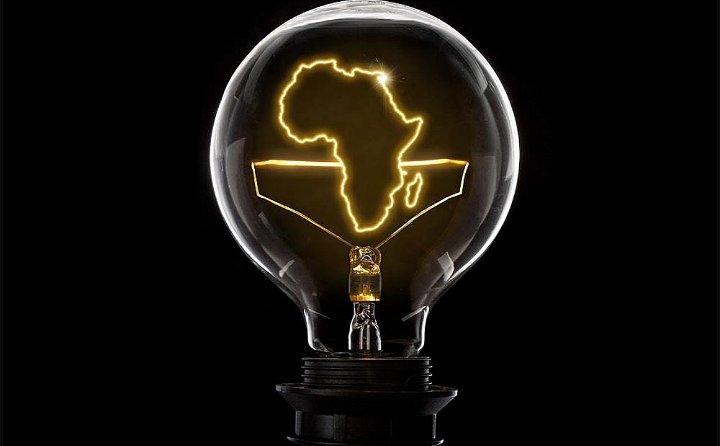The journey from poverty to dollar billionaire status is one of resilience, innovation, and determination. This article explores the stories of 7 African dollar billionaires who have achieved extraordinary success without misappropriating their countries’ taxes.
1. Aliko Dangote (Nigeria)
- Background: Born into a wealthy family, Dangote’s entrepreneurial spirit emerged early. He borrowed $3,000 from his uncle shortly after graduating from college to start his business in commodities trading, focusing initially on agricultural products like sugar and rice. This venture was successful, allowing him to repay the loan within three months.
- Rise to Wealth: He transformed his initial venture into the Dangote Group, focusing primarily on cement production, which now dominates the African market with an annual output of 48.6 million metric tons. While his empire is built on commodities, Dangote has been diversifying into oil and gas, telecommunications, and agriculture.
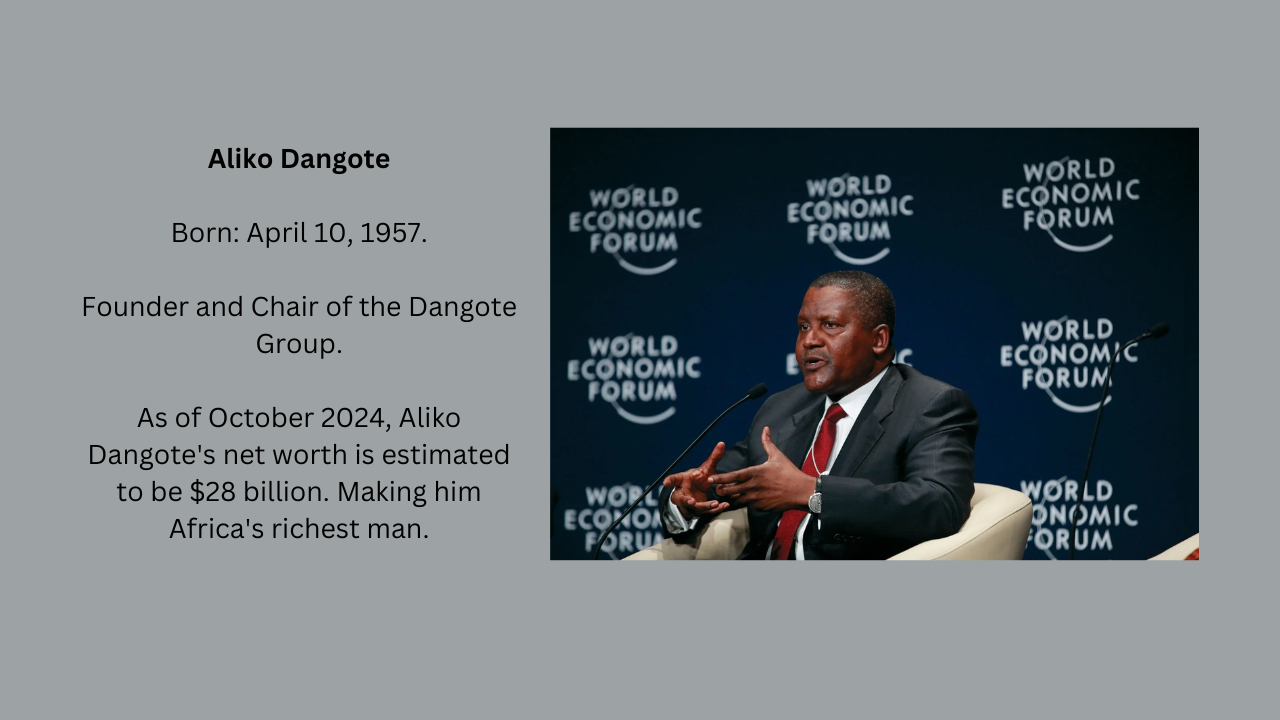
2. Patrice Motsepe (South Africa)
- Background: Motsepe’s early life was marked by modest means; he was the first in his family to attend university.
- Rise to Wealth: He founded African Rainbow Minerals and capitalized on undervalued gold mines during a market downturn, turning them profitable and becoming South Africa’s first black billionaire. In 2003, he purchased Mamelodi Sundowns F.C., a leading football club in South Africa. In March 2021, he was elected president of the Confederation of African Football (CAF)
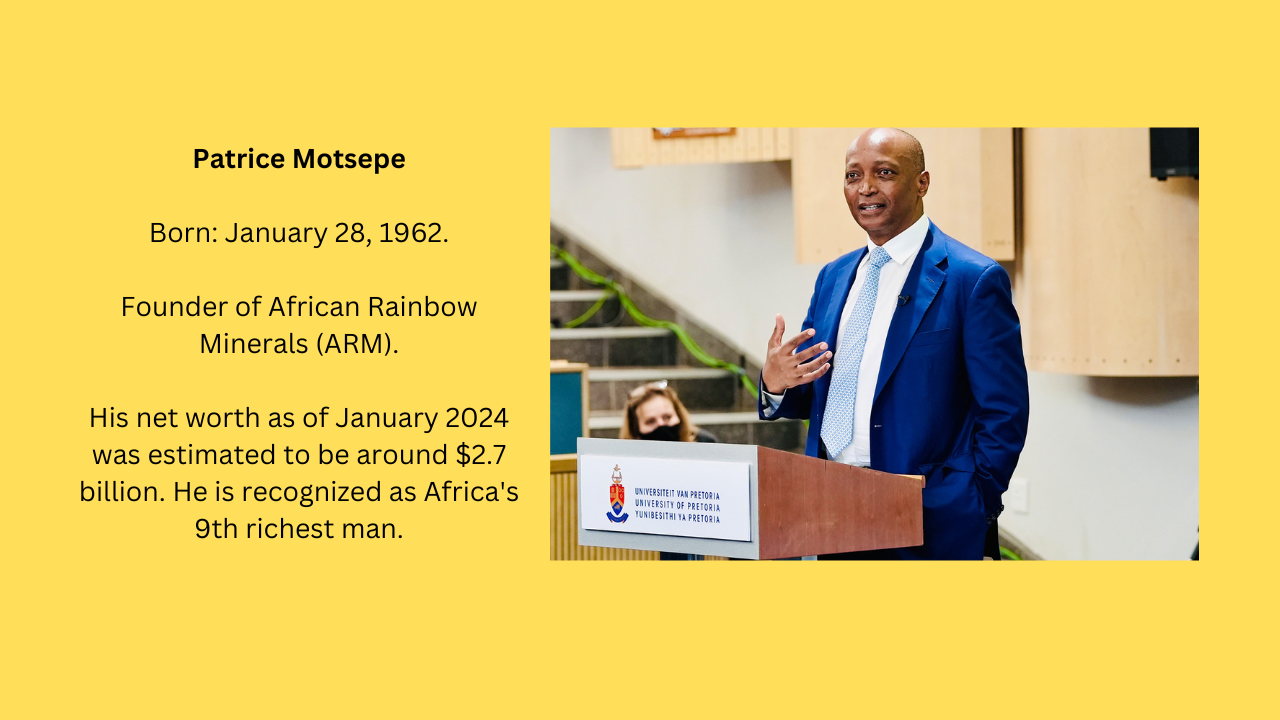
3. Strive Masiyiwa (Zimbabwe)
- Background: Masiyiwa faced numerous obstacles, including government opposition while trying to establish his telecom business.
- Rise to Wealth: He founded Econet Wireless, which grew into one of Africa’s largest telecommunications companies, making him a billionaire and a prominent philanthropist. Masiyiwa has established several companies and investments, including Cassava Technologies, Liquid Intelligent Technologies, and various wireless operations throughout Africa. His businesses have diversified into sectors like renewable energy and financial services.
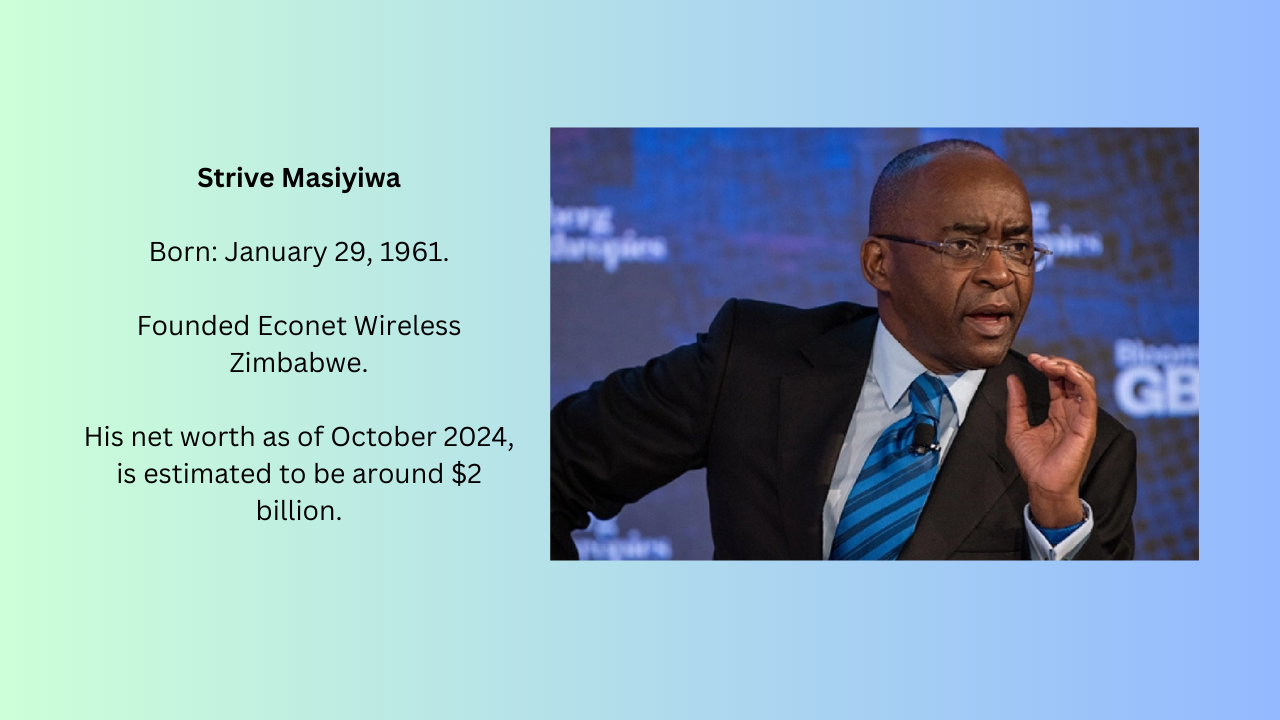
4. Nicky Oppenheimer (South Africa)
- Background: Though born into a wealthy family, Oppenheimer faced challenges in maintaining and growing his family’s diamond business.
- Rise to Wealth: Oppenheimer joined Anglo American Corporation in 1968, becoming a director in 1974. He served as Deputy Chairman from 1983 until his retirement in 2001. He became Chairman of De Beers Group from 1998 to 2012, overseeing significant growth in the diamond business. He expanded De Beers and later sold his family’s stake for $5.1 billion.
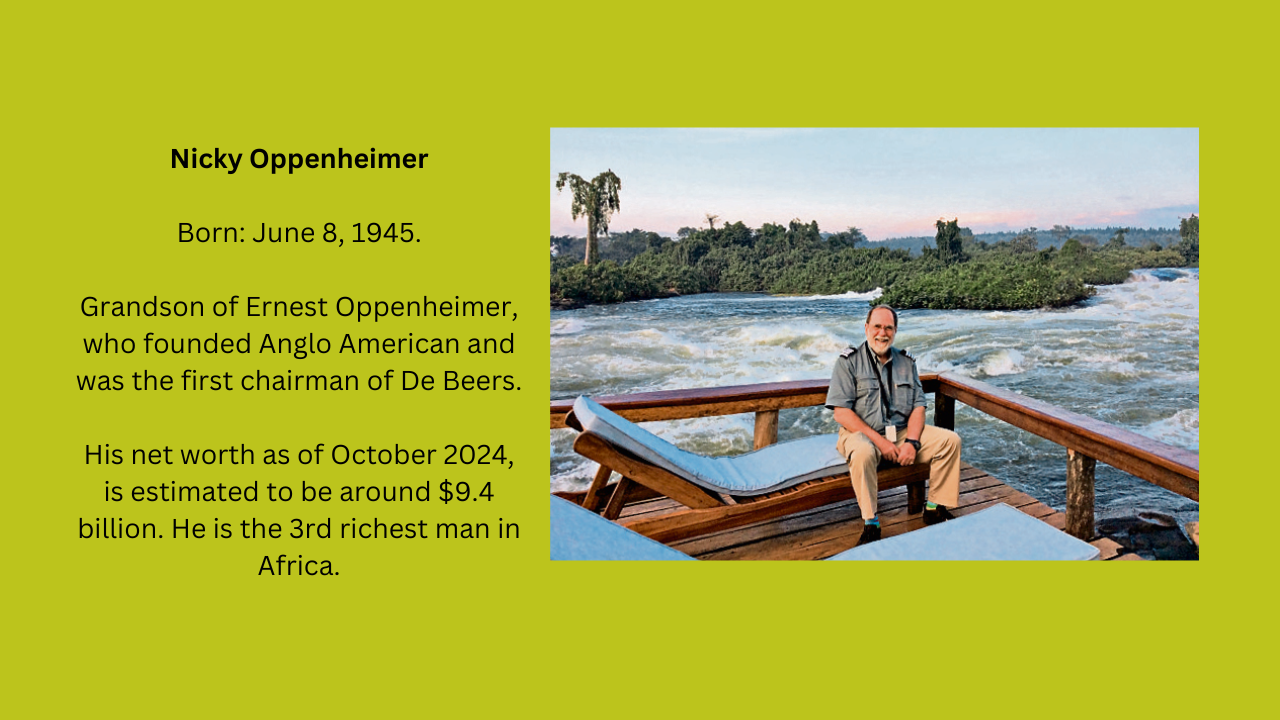
5. Mike Adenuga (Nigeria)
- Background: Adenuga grew up in poverty and worked various jobs to fund his education.
- Rise to Wealth: Adenuga made his first million at age 26 by selling lace and distributing soft drinks. He later ventured into commodity trading. In 1991, he struck oil in commercial quantities with his company, Conoil. In 2003 Adenuga founded Globacom, which has grown to become Nigeria’s second-largest telecom operator, with operations extending to Ghana and Benin, amassing a fortune of over $6 billion.
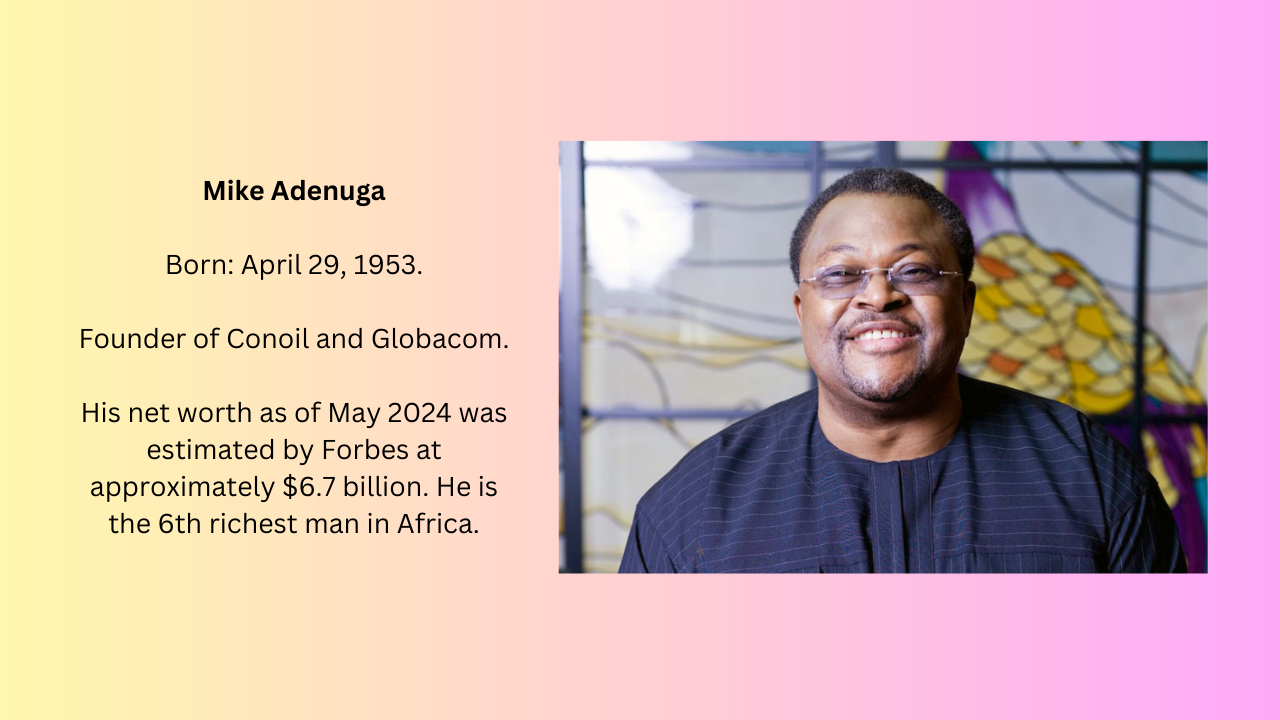
6. Folorunsho Alakija (Nigeria)
- Background: Alakija started her career as a secretary before venturing into fashion design.
- Rise to Wealth: Alakija began her career in banking as an executive secretary in 1974. In 1996, she founded her fashion label, Supreme Stitches. In 1993, Alakija applied for an oil prospecting license and was granted a license to explore a 617,000-acre block offshore Nigeria. She transitioned into oil exploration, where her company became one of the largest oil producers in Nigeria, leading her to become one of the richest women in Africa.
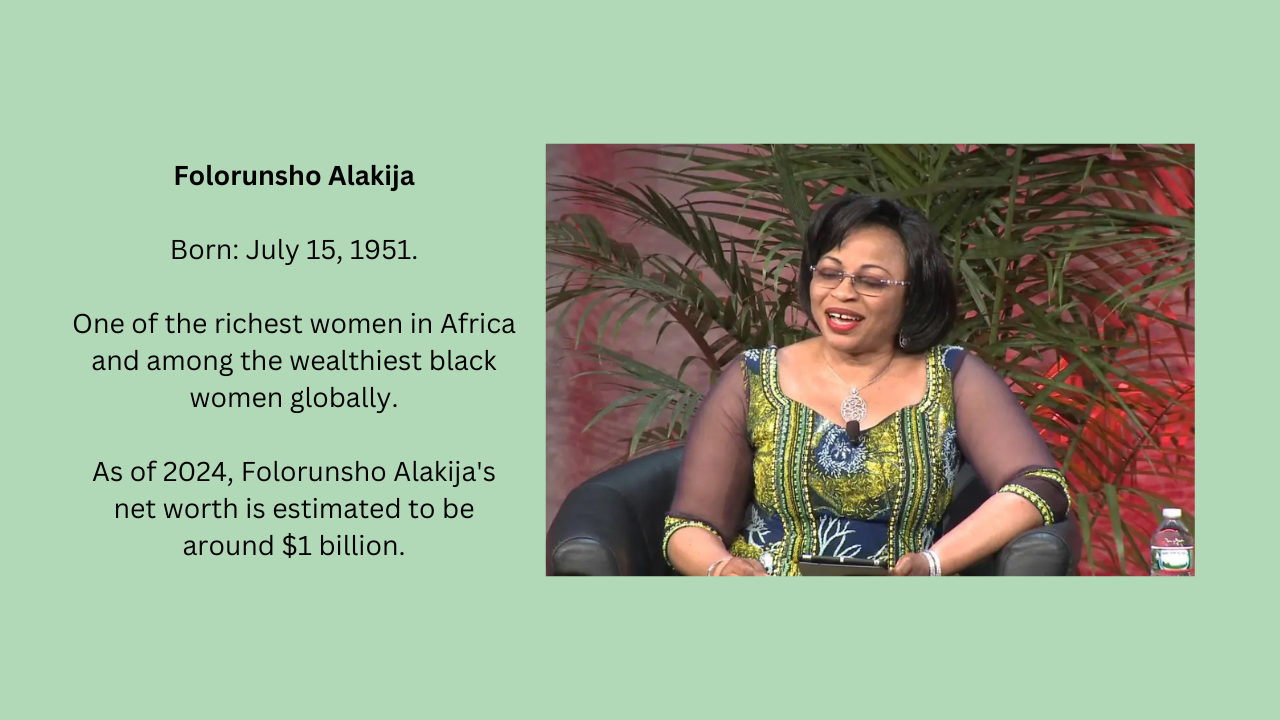
7. Mohamed “Mo” Ibrahim (Sudan)
- Background: Mo Ibrahim was born in Sudan, of Nubian descent. He is the second of five children in his family. He grew up in a modest household and pursued education abroad.
- Rise to Wealth: Ibrahim worked for several telecommunications companies before founding Celtel in 1998, which became one of Africa’s largest mobile phone operators. Celtel grew rapidly, serving over 24 million subscribers across 14 African countries. In 2005, he sold Celtel for $3.4 billion.
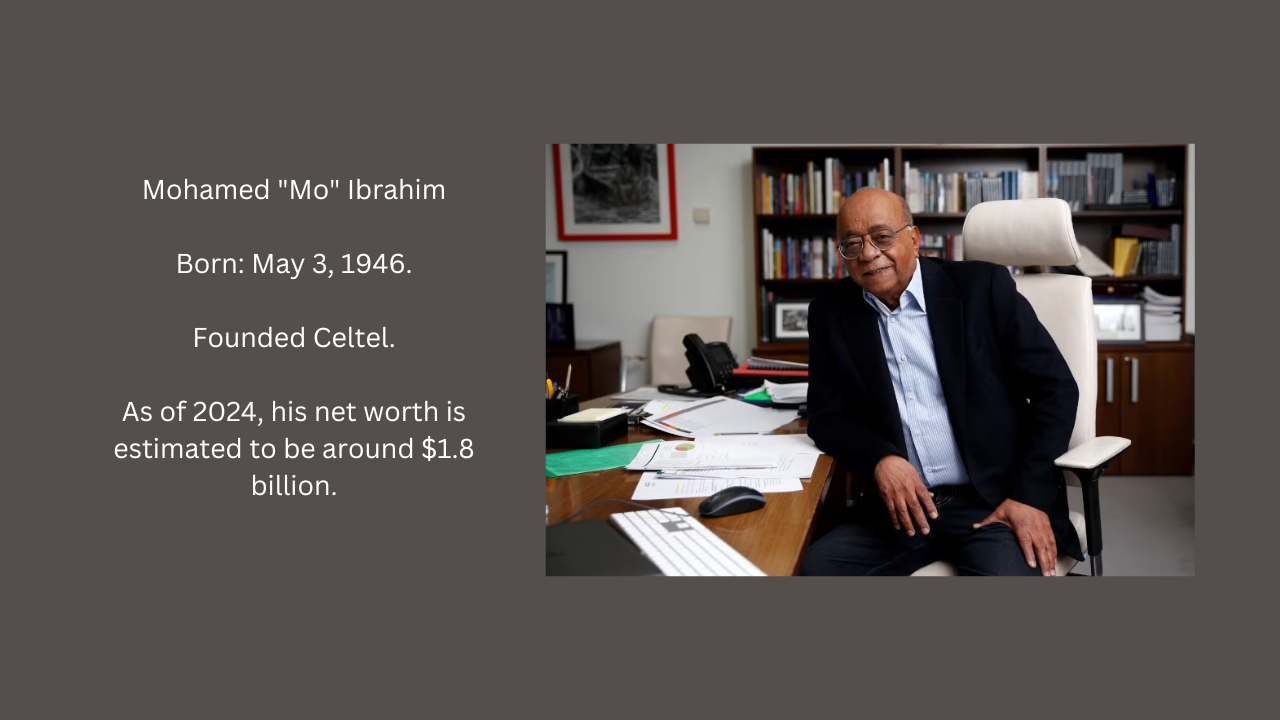
These seven Africans prove that with perseverance and strategic thinking, it is possible to rise from humble beginnings to extraordinary heights. Their stories serve as inspiration for aspiring entrepreneurs across the continent and beyond.
Also Read: Path to Riches 2024: Entrepreneurship Overtaking Politics in Kenya


